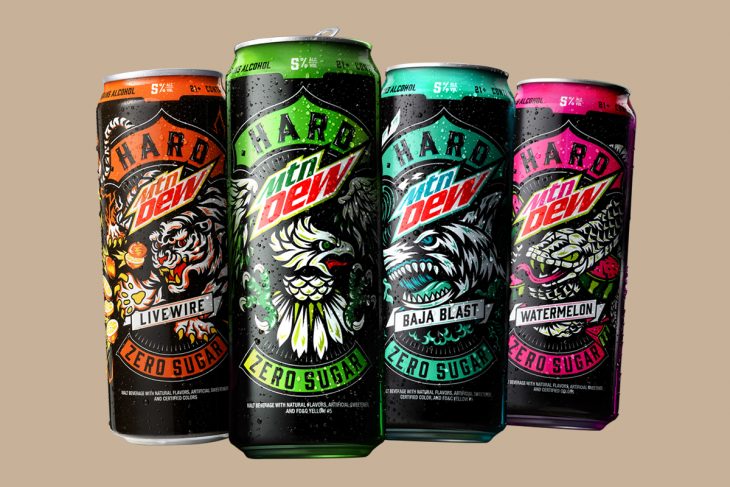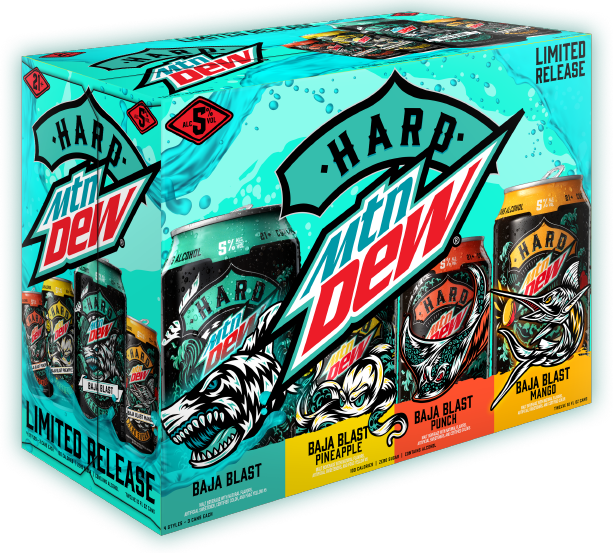
Hard Mountain Dew is a unique beverage that combines the classic taste of Mountain Dew with the kick of an alcoholic drink. With a growing fanbase, many people are curious about the nutritional aspects of this distinctive beverage. Here, we’ll dive into 11 Hard Mountain Dew nutrition facts to keep you informed about what you’re consuming.
Caloric Content
Hard Mountain Dew contains 100 calories per 12-ounce serving. Compared to regular Mountain Dew, which has 170 calories per 12-ounce serving, the hard version has significantly fewer calories. It’s important to consider the calorie content of your beverages, especially if you’re watching your weight or trying to maintain a healthy lifestyle.
Alcohol Content
The alcoholic content of Hard Mountain Dew is 5% alcohol by volume (ABV). This puts it in the same range as many light beers and other flavored malt beverages. Keep in mind that consuming alcohol can contribute to weight gain, impair judgment, and lead to other health risks if not consumed in moderation.
Sugar Content
Hard Mountain Dew contains 0 grams of sugar per serving. This is a significant reduction compared to the 46 grams of sugar found in a regular 12-ounce serving of Mountain Dew. For those looking to enjoy an alcoholic beverage without the added sugars, Hard Mountain Dew is an appealing option.
Carbohydrates
Each serving of Hard Mountain Dew contains 2 grams of carbohydrates. This is considerably lower than the 46 grams found in a regular Mountain Dew. While Hard Mountain Dew isn’t a low-carb beverage, its carbohydrate content is relatively low compared to other sugary drinks.
Sodium Content
Hard Mountain Dew contains 20 milligrams of sodium per serving, which is lower than the 60 milligrams found in regular Mountain Dew. Sodium is an essential nutrient, but excessive intake can lead to high blood pressure and other health issues. Keep an eye on your sodium intake, particularly if you’re consuming multiple servings of Hard Mountain Dew.
Caffeine-Free
Unlike regular Mountain Dew, Hard Mountain Dew is caffeine-free. This makes it a suitable choice for individuals who are sensitive to caffeine or looking to limit their caffeine intake.

Artificial Sweeteners
To achieve its sugar-free profile, Hard Mountain Dew is sweetened with sucralose, a zero-calorie artificial sweetener. While sucralose is generally considered safe for consumption, some people may experience side effects or have concerns about its long-term effects on health. If you prefer to avoid artificial sweeteners, Hard Mountain Dew may not be the right choice for you.
Natural Flavors
Hard Mountain Dew uses natural flavors to achieve its signature taste. Natural flavors are derived from plant or animal sources, but their specific composition can vary. If you have food sensitivities or allergies, it’s important to be cautious when consuming products with natural flavors.
Gluten Content
Hard Mountain Dew is gluten-free, making it suitable for those with celiac disease or gluten sensitivities. However, always double-check with the manufacturer or consult your healthcare provider if you have concerns about potential gluten exposure.
Not a Significant Source of Nutrients
Like most other soft drinks and alcoholic beverages, Hard Mountain Dew is not a significant source of essential nutrients, such as vitamins and minerals. While it’s enjoyable as an occasional treat, it’s important to remember that it shouldn’t replace healthier beverage options or be relied upon for nutritional value.
Moderation is Key
As with any alcoholic beverage, it’s crucial to consume Hard Mountain Dew responsibly and in moderation. The Centers for Disease Control and Prevention (CDC) recommends that women consume no more than one alcoholic drink per day and men no more than two. Excessive alcohol consumption can lead to short-term and long-term health risks, including addiction, liver disease, and an increased risk of various cancers.
Conclusion
Hard Mountain Dew offers a unique twist on a classic soda, combining the familiar flavor of Mountain Dew with the kick of an alcoholic beverage. Its reduced calorie, sugar, and carbohydrate content may be appealing to those looking for a lighter alternative to traditional sugary drinks. However, it’s important to remember that moderation is key when consuming any alcoholic beverage and that Hard Mountain Dew should not be relied upon as a source of essential nutrients. Enjoy responsibly and always be aware of the potential health impacts associated with your beverage choices.
Was this page helpful?
Our commitment to delivering trustworthy and engaging content is at the heart of what we do. Each fact on our site is contributed by real users like you, bringing a wealth of diverse insights and information. To ensure the highest standards of accuracy and reliability, our dedicated editors meticulously review each submission. This process guarantees that the facts we share are not only fascinating but also credible. Trust in our commitment to quality and authenticity as you explore and learn with us.
